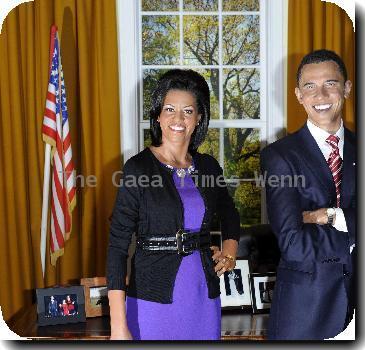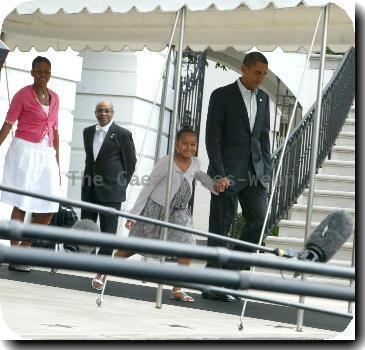Davos seeks to keep banks in line and help Haiti, cultivating social conscience amid recovery
By Angela Charlton, APMonday, January 25, 2010
Sober Davos forum eyes banking reforms, Haiti
DAVOS, Switzerland — Responsible banks and aid for Haiti — not invincible billionaires, high-charged diplomacy or rock stars — are the watchwords at this year’s World Economic Forum at Davos.
This rarefied Swiss resort will still host its share of bankers rich on post-meltdown bonuses and perhaps less of the humility that marked last year’s gathering of many of the world’s rich and powerful, then struggling through government bailouts and questioning their future.
Yet participants and organizers of this week’s five-day forum, opening Wednesday with more than 2,500 leading figures in business and politics on deck, suggest Davos is marking its 40th birthday by adapting to a more sober and dispersed modern economy, one where Beijing weighs increasingly on the market balance, and where poverty and public outrage demand the attention of the world’s moneymakers.
“The euphoria about globalization that marked Davos for years has in a sense been undermined by the global crisis,” Joseph Stiglitz, a Nobel Prize-winning economist and frequent participant at Davos, said in an interview, expressing hope that “going forward, there can be a more serious attempt to try to get a more balanced view, not only at the benefits but at some of the risks.”
While President Barack Obama’s administration will be only modestly represented at this year’s forum, his plan to clamp down on the size and activity of banks will be on many chief bankers’ minds.
The forum’s founder, Klaus Schwab, said the event is opening in a “mood of reflection.”
“There is nothing at the moment to be celebrating,” Schwab told The Associated Press.
In past years, especially when markets were booming, Davos earned a reputation for lavish parties and free spending by magnates safely ensconced in a mountain valley protected by an army of police and security.
Some bankers are expected to come back to Davos this year confident in recovery after staying away last year in the heat of the financial meltdown, but Schwab insisted past models of financial governance must change to avoid future crises.
“Some bankers have understood the seriousness of the situation,” he said, saying bonuses will come under scrutiny at the Davos forum this year.
Rising global unemployment and sluggish recovery from recession form the backdrop for the forum, which will host more than 30 presidents and prime ministers from Jan. 27-31. The event, titled “Improve the State of the World: Rethink, Redesign, Rebuild,” will be opened by French President Nicolas Sarkozy — a man who once hungered for freer markets for his country but now espouses a more state-supervised kind of “moral capitalism.”
The forum, which has traditionally championed market-driven solutions, finds itself in a challenging pose.
This year’s agenda looks at reforming banks and barriers to world trade as well as cybercrime, corruption and how businesses can respond to climate change.
Political headliners include Presidents Luiz Inacio Lula da Silva of Brazil, Lee Myung-Bak of South Korea and Jacob Zuma of South Africa and Prime Ministers Stephen Harper of Canada and Luis Rodriguez Zapatero of Spain. But the number of top leaders is sparser than in years past.
The slim U.S. presence suggests Davos is not a high priority for Obama’s administration, after years of top-level participation under George W. Bush. Lawrence Summers, director of the National Economic Council, is the highest U.S. official slated to appear, leaving Obama at home amid a political battle over health care reform and unemployment over 10 percent, and set to give the U.S. State of the Union address on Wednesday.
Former President Bill Clinton’s appearance will focus not on U.S. economic policy but on Haiti. As the U.N. special envoy to Haiti, he will encourage Davos participants to give some thought, and cash, to helping rebuild the Western Hemisphere’s poorest nation after the earthquake that killed as many as 200,000 earlier this month, one of history’s deadliest.
Diplomatic prospects at Davos this year are uncertain.
Last year’s forum saw the heat of the Mideast tensions sear the Davos chill as Turkish Prime Minister Recep Tayyip Erdogan stormed off a stage shared with Israeli President Shimon Peres because of the Gaza offensive. Other years saw Mideast peace efforts progress at the closed-door meetings that are a hallmark of the forum.
This year’s cultural figures include “Avatar” director James Cameron and classical pianist Lang Lang.
At its core, though, Davos is about the economy.
“The main asset which the World Economic Forum has created is this sort of hub, this notion that during a few days a year a large part of the economic leaders of the planet are together,” Pascal Lamy, director-general of the World Trade Organization, told The AP.
Lamy called Davos “a single story, a single place, a single moment. … It has created a bonding culture, which is what we need in today’s globalized planet.”
Masha Macpherson and Bradley S. Klapper contributed to this report.
Tags: Arts And Entertainment, Barack Obama, Bill Clinton, Caribbean, Celebrity, Davos, Davos-forum, Europe, Events, Haiti, Health Care Industry, Latin America And Caribbean, Lee Myung-bak, North America, Switzerland, United States, Western Europe, World Economic Forum Annual Meeting, World Economic Forum Annual Meeting 2010






